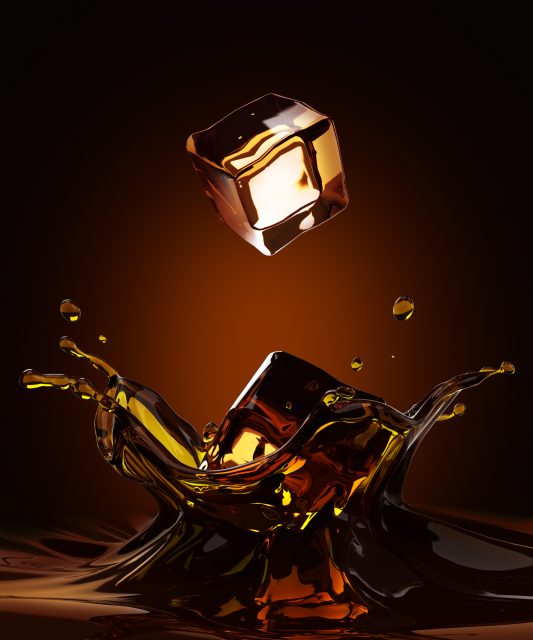This website uses cookies so that we can provide you with the best user experience possible. Cookie information is stored in your browser and performs functions such as recognising you when you return to our website and helping our team to understand which sections of the website you find most interesting and useful.
Why drinks taste more alcoholic when warm, according to science
A glass of whisky neat will taste more alcoholic than having it on the rocks, and scientists have discovered that the shapes formed by its water and ethanol molecules are to thank for this phenomenon.

If you have ever thought that a warm beer tastes more alcoholic than a cold one, you now have science to back up your theory.
Water and ethanol molecules, and the way the cluster together at different temperatures, impact the flavour profile of alcoholic drinks, according to a new study.
Lei Jiang and his colleagues at the Chinese Academy of Sciences undertook research to uncover how factors like temperature and ABV impact the molecular make up of beverages like beer, rice wine and baijiu.
In the first stages of their research, the scientists measured the surface tension of different alcohol types. According to New Scientist, they used nuclear magnetic resonance imaging and computer simulations to “zoom in” on combinations, or clusters, of water and ethanol molecules. They would then increase the ABV of the drinks, and studied changes in their clusters at different alcohol levels and temperatures.
To see how changes in clusters impacted people’s reactions to the drinks Jiang and his team partnered with Chinese baijiu brand Wuliangye to do taste tests.
The research revealed that colder and less alcoholic liquids, because of the different structure of their molecule clusters, were associated with a more refreshing flavour.
“When the temperature drops, the structure becomes more compact, which is why chilled beer has a more stimulating taste,” Jiang said.
Warmer drinks and those with a higher ABV were perceived to be more pungent and to taste more alcoholic, due to their change in cluster formation.
However, Gavin Sacks at Cornell University in New York warned that linking molecular clusters to taste is complicated, and explained that the same receptors in the mouth are triggered by the burning sensation of alcohol as by heat.

